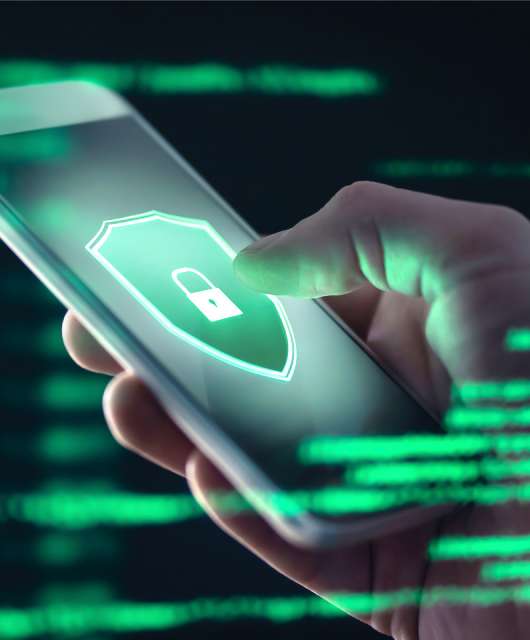The UK government was the centre of a storm of criticism surrounding plans for the country’s new 5G cellphone network. Although the new network is desperately needed, experts are concerned about the decision to include Huawei technology.
What’s the problem with Huawei?
In China, successful companies tend to be very closely aligned with the government. This means that they agree to operate according to very strict rules – and to share information if requested.
Information sharing is absolutely vital to the way that the Chinese population is monitored and controlled. And tech companies like Huawei play a role in making state surveillance possible.
As the relationship between Huawei’s senior management and the Chinese government has become clearer, many governments have voiced concerns. If Huawei technology is used to spy on Chinese citizens, it could also be used to spy on foreign countries too.
An unusual decision
These concerns make the UK’s decision to permit Huawei technology in the construction of critical national infrastructure all the more unusual. The USA and Australia have already banned the Chinese supplier from their own projects and others are expected to follow their lead.
The UK believe they have controlled any risk of espionage by limiting Huawei to supplying equipment at ‘the edge’ of the network. They will not be allowed to assist with the construction of the ‘core’.
What does this mean? The core of the network is where the most sensitive data and communications are transmitted; if a foreign government could access the core they could spy on communications – or even disrupt the network entirely.
The edge describes equipment like the wireless transmitters that connect our mobile phones to the network. Although important, there is less risk of government data being stolen, or the network being taken offline.
By allowing Huawei to supply equipment, the UK hopes to lower the overall cost of building the new 5G network. And by limiting Huawei to the edge, they hope to contain potential risk.
But there are two problems. First, the UK does not fully understand the potential risks posed by allowing equipment that may have been compromised into the network. With a backdoor into the network, state-sponsored hackers could still work to take control of the core.
Second, government data may be protected, but our personal data still passes through the edge. It is possible that ordinary peoples’ information is stolen and misused as a result of Huawei’s involvement.
Even if the worst case scenario never happens, the UK’s decision to invite a hostile foreign player into their secure systems is a cyber security lesson for us all. As you use your PC or mobile device, think carefully about who you are inviting in. Every password you share or app you download opens a door that could be used by a hacker. It is always safest to block access whenever you have the chance.









8 comments
Why do u consider China to be a “hostile foreign player”?
It is simply in their nature. How many western products have been copied by the Chinese to far inferior standards and used to destroy our own industry wit the cooperation of government?
Because it is and has committed many crimes already
USA is shaking. They don’t know how to stop Huawei from growing. Spionage?… really? Isn’t that USA area of expertise? They just want to be the only ones doing it. England is making a bold move which will bring its rewards in the future. In the meantime, USA is staying behind China in 5G development. And the paid news, as usual, trying to create fear in the public. Winds of change.
I am assuming that this report is connected in someway to the Trump USA, who only wants the world to use USA based countries or USA friendly companies, however even Apple have parts of their technology produced in China, he forgets the British have intelligence services superior to the USA and will be involved in the vetting EVERYTHING operating in cyberspace, also the EU has also said it WILL be using Huawei equipment…… No US company compares and we don’t want any of Trumps companies interfering as they would also bid to spy on us!!!!
Huawei refuses to add backdoor for US. and use bans huawei products.
Old story for all other companies too.
Hi Panda,
I think your article make sense but UK gov’t is not stupid, first –
*There isn’t a single prove that Huawei’s equipment is having a backdoor.
*(successful companies tend to be very closely aligned with the government.), true so is all countries.
* (Chinese population is monitored and controlled), true so is all countries, I’m sure you knew who Edward Snowden is.
* when you mention about foreign hostile (what hostile?) this is about technology and business unless you’re all about domination and racist and denial dude.
* Do you have any prove about China and Huawei backdoor spying?
Hey, what about going back to the roots and use smoke signs like the indians? USA’s and China’s citizens are mostly same stupid and believe in Trump and Jinping brainwashing methods. Thank God that there are still some smart people who believes in themself.